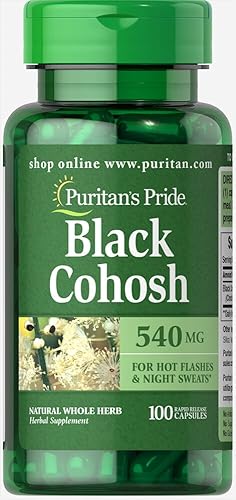How to relieve Premenstrual Syndrome.
Before scientists can find the true cause of PMS symptoms, find a way to alleviate the symptoms. Currently used in many ways, depending on what symptoms need to be alleviated. Some people take fever medication, painkillers. Birth control pills for hormonal adjustment Anti-allergy medication Sedatives Appetite therapy medicine Diuretics to reduce congestion People with severe mental symptoms may need to use neurological drugs as ordered by a psychiatrist.
- Drugs that have proven evidence that The efficacy of PMS treatment is SRIs alprazolam GnRH agonist oral contraceptives (Drospirenone combined with low estrogen) and others that have evidence to help with treatment such as exercise, relaxation and spironolactone.
- Food is one thing that some people think may be used to treat PMS. Some people abstain from certain foods such as eggs or meat. Before menstruation But still does not appear that Just one food causes symptoms. Or can alleviate the above symptoms Except people who tend to have swelling Avoiding eating salty foods can help reduce fluid retention, so swelling can be reduced. Latest reported that Foods that contain caffeine include tea, coffee, cocoa and some soda. Can cause PMS symptoms, therefore should avoid these foods
- Weight loss is another way that may help the PMS to reduce the intensity. Understand that when overweight women lose weight, they help balance hormones in the blood.
- Used to understand that vitamin B6 may help alleviate symptoms, causing some women to take too much vitamin B6 supplements. To the point of breaking the nerve At present, it is known that Does vitamin B6 supplementation have any effect on PMS symptoms (PMS)?
- Exercise regularly
- Try to avoid stress Or looking for an opportunity to relieve stress
- Get enough rest
Who has PMS?
It is estimated that around 75% of women, especially those aged 25-40 years, have PMS before 5-11 days and symptoms will improve after 4-7 days. However, some women also have PMS from time to time. Not every menstrual cycle. PMS symptoms occur throughout the menstrual period, from the beginning of menstruation at the age of 15 years and ending at the end of menstruation. At the age of 48 years is considered a long period. For many decades, many women have suffered from PMS because they have both physical and mental health.
What are PMS groups?
Physical symptoms include thirst, acne, easy forgetfulness, insomnia, hot flashes Occasional palpitations Some headaches, abdominal pain, nausea, flatulence, eating more than usual. Appetite and appetite change, such as wanting to eat extremely sugary or salty foods. Most of them are very fluid, causing uncomfortable hands, feet and face, swelling, breast tenderness and headache. Some people may disappear as if completely abandoned. But these symptoms will come back in the next month and so on and so on. Until the end of the period.
Symptoms that can be expressed psychologically, emotionally and emotionally include mood swings, irritability, irritability and impulsiveness. Good moment, bad moment Sometimes depression, crying easily, sometimes impatient Almost crazy without concentration.
Causes of PMS
Currently, it is not known whether What causes some women to have PMS while some other women have never had such symptoms? It is assumed that this may be due to changes in female hormones and certain chemicals in each menstrual cycle.
- The imbalance of many chemicals and hormones during the ripening phase may be divided into 28 days of one menstrual cycle into two phases. The first phase is the phase in which the eggs grow. In this phase, no abnormal symptoms occur. The second phase is the period when the eggs are cooked. When the eggs fall from the ovary to wait for fertilization in the uterus, PMS occurs. The brain controls the reproductive system by sending signals through many chemicals to the ovaries. It is assumed that these symptoms occur due to chemical and hormonal imbalances. Many of them during the ripening stage of the substance thought to be the cause are estrogen, progesterone. (Progesterone) endrophin (endrophin) and serotonin levels in the brain etc. Therefore, it is advisable to cure hormonal imbalance by giving hormones as medicine. But it is not able to help relieve PMS symptoms for all women. It shows that this is not caused by hormonal imbalances only
- Genetic factors May be the cause of PMS. It is found that in twins, there is a high chance of being both PMS with environmental factors and also found that There is a relationship between the symptoms of the menstrual cycle between mother and daughter. And between the sisters and the sisters Which supports genetic factors affecting PMS. Genetic factors are considered only one factor. There are many different factors such as personal characteristics. Stress level Mechanism for behavior modeling There is little evidence to support the hypothesis.
- Drinking alcohol found that women with PMS drink more alcohol than normal women. And in women with a history of living in a family of alcoholics There are often signs of premenstrual anxiety and other behavioral symptoms, but there is no clear evidence of a relationship between an alcoholic woman and a PMS woman.
Puritan's Pride Black Cohosh 540 mg-100 Capsules

